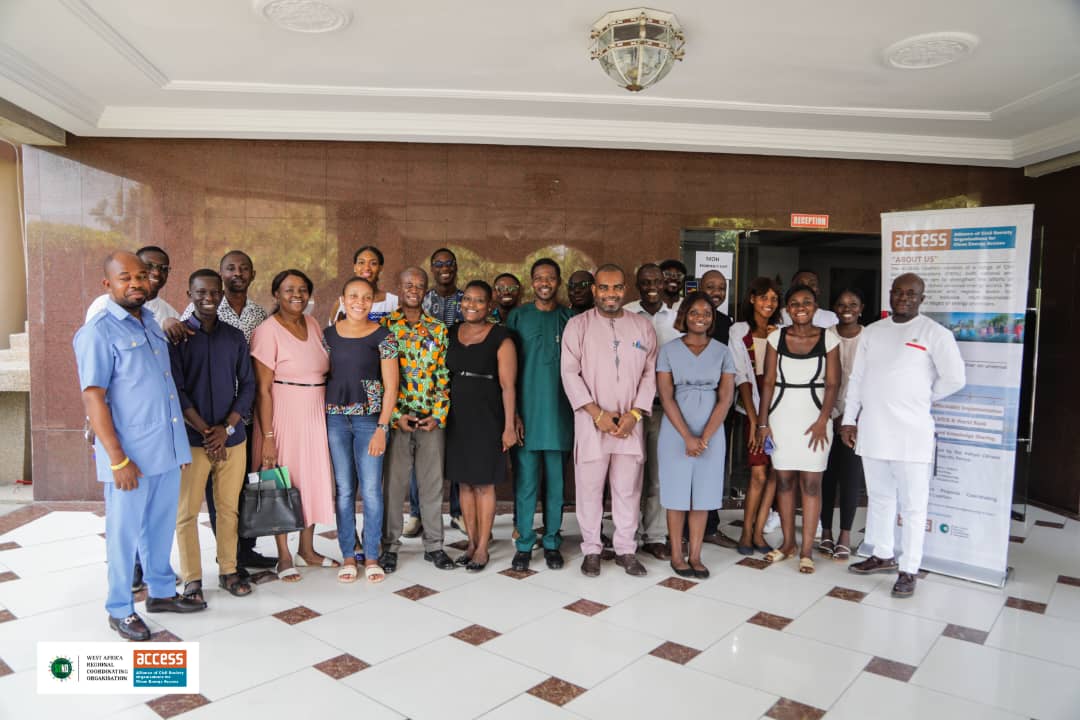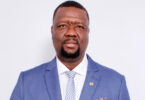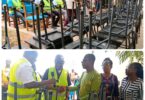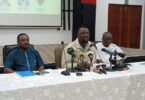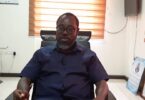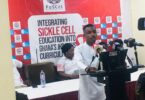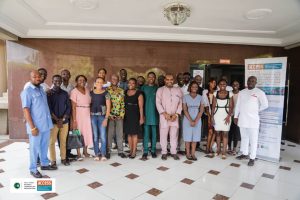
Group picture of participants & representatives of World Bank &AfDB
Story by: Ishmael Barfi
The Alliance of Civil Society Organizations for Clean Energy Africa (ACCESS) for West Africa has held an engagement meeting with the World Bank and the Africa Development Bank(AFDB) for Civil Society Organizations in Ghana.
The CSOs Engagement Meeting was to give CSOs the platform to interact with the two banks on its Country Strategy Paper (CSP) and other relevant policies with regards to climate change and clean energy and how best CSOs can contribute to its success.
Addressing participants at the Engagement Meeting on 3rd February, 2023 in Accra, Mr Chibeze Ezekiel, West Africa Regional Coordinator- ACCESS Coalition Secretariat was of the view that, there is the need for CSOs championing climate change and clean energy to know and be abreast with the numerous policies of these two banks.
“As CSOs working in climate change and energy space, we feel it’s important to engage the banks to understand how they’re supporting our countries when it comes to climate change and energy, and how as CSOs we can support that process and ensure that they are able to achieve the objectives, the impact”, he indicated.
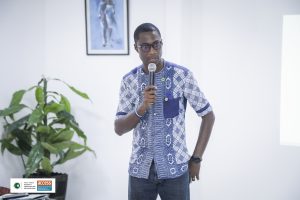
Mr. Ezekiel Chibeze, Regional Coordinator-ACCESS Coalition Secretariat-West Africa
To him, CSOs see themselves more as stakeholders contributing to fight against climate change, hence supporting the banks numerous policies in that regard.
Meanwhile, he further revealed that, since current Country Strategy Paper (CSP) of AFDB expires this year, AfDB is in the process of developing a new Country Strategy Paper (CSP).
Adding that, as CSOs, they had a chance to review and make some recommendation for the development of the new CSP that was being developed for the next four years, thus from 2022-2026.
For World Bank, the Regional Coordinator Ezekiel Chibeze who is also the Executive Coordinator for Strategic Youth Network for Development (SYND) explained that, there was massive consultation with CSOs, youth groups with disability to get their views before coming out with a CPM.
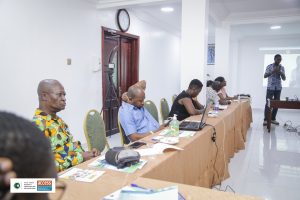
Cross Section of participants at the Engagement Meeting
Therefore, he was of the hope that, this year, the financing of the World Bank and ADB will tackle climate change impact in Ghana so that Ghanaians can feel the impact of it’s policies as well as cushion, or to adapt as they fight against the increasing impact of climate change in their daily lives.
The forum gave participants an opportunity to engage ACCESS Coalition, the World Bank and AfDB in a question and answer session.
Speaking of engaging government, Mr. Chibeze indicated, CSOs in Ghana have over the years engage government on numerous policies, projects an programmes geared to towards climate change and clean energy in the country.
To him, they can’t do away with government because government is a bigger stakeholder in the climate change and clean energy space.
“Even for us as NGOs, we even get funded, sometimes we get funding based on what the intervention seeks to do and whatever we’re doing is to support government’s own plan”, he reiterated.
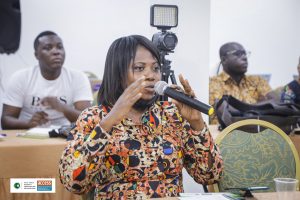
A participant expressing her view at the Engagement Meeting
“For example, if you’re doing a program or a project around climate change, it has to inform or contribute to the achievement of the national climate change policy of Ghana. We can’t do anything outside”.
Therefore “we see Ghana’s government as a major stakeholder in the process so we actually work hand in hand with the government at the national level, with the sector ministries, and at the local level, we also work with the district assemblies in order to ensure that we are working hand in hand towards the national agenda”.
“We can’t do without government because if the bank support the government avidly, we also have a role to play by trying to monitor and evaluate the work of government so we can also give our own independent feedback to the banks on what their support is doing for the country”.
Speaking at the Engagement Meeting, the Africa Development Bank(AFDB) Representative, Mr. Bekale Ollame, explained that, the bank seeks the interest of member countries and always desire to engage key relevant stakeholders such as CSOs to have a strong policy paper for member countries which Ghana is not an exception.
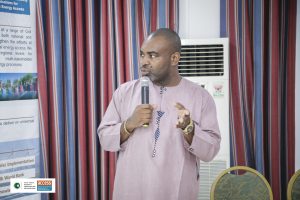
Africa Development Bank(AFDB) Representative, Mr. Bekale Ollame addressing participants
He further indicated that, the bank always ensure that, it’s policies and projects reflects the needs and wants of the country and other relevant stakeholders like the CSOs and youth groups.
Outlining some of these policies, Mr. Bekale Ollame who is also the in charge of country programs pointed out that, most projects or programs consists of two pillars.
First and foremost, support for country’s industrialization and private sector development activities.
And also ensures that, the output is in two folds; one is to enhance business framework to develop infrastructure for industrialization whiles the second output is to increase private investment in manufacturing sector for job creation and regional integration and trade.
The second pillar he indicated is supporting infrastructure of member countries, thus domestic regional programs.
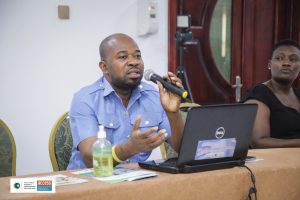
ACCESS Coalition Secretariat Holds Engagement Meeting with World Bank & AfDB
Under the second pillar, two outcomes is expected; the first one is improvement of transport availability for trade and inequality reduction whiles the second one is to facilitate domestic and cross-border trade and cross cutting themes.
Mr. Bekale Ollame used the occasion to encourage CSOs to continue engaging them and other key stakeholders to ensure effective utilization of resources in the fight against climate change and ensuring clean energy in Africa.
The Alliance of Civil Society Organizations for Clean Energy Africa (ACCESS) for West Africa is a regional Coalition for CSOs in West Africa with its West Africa Regional Secretariat in Ghana hosted by the Strategic Youth Network for Development (SYND).
Source: www.thenewindependentonline.com


